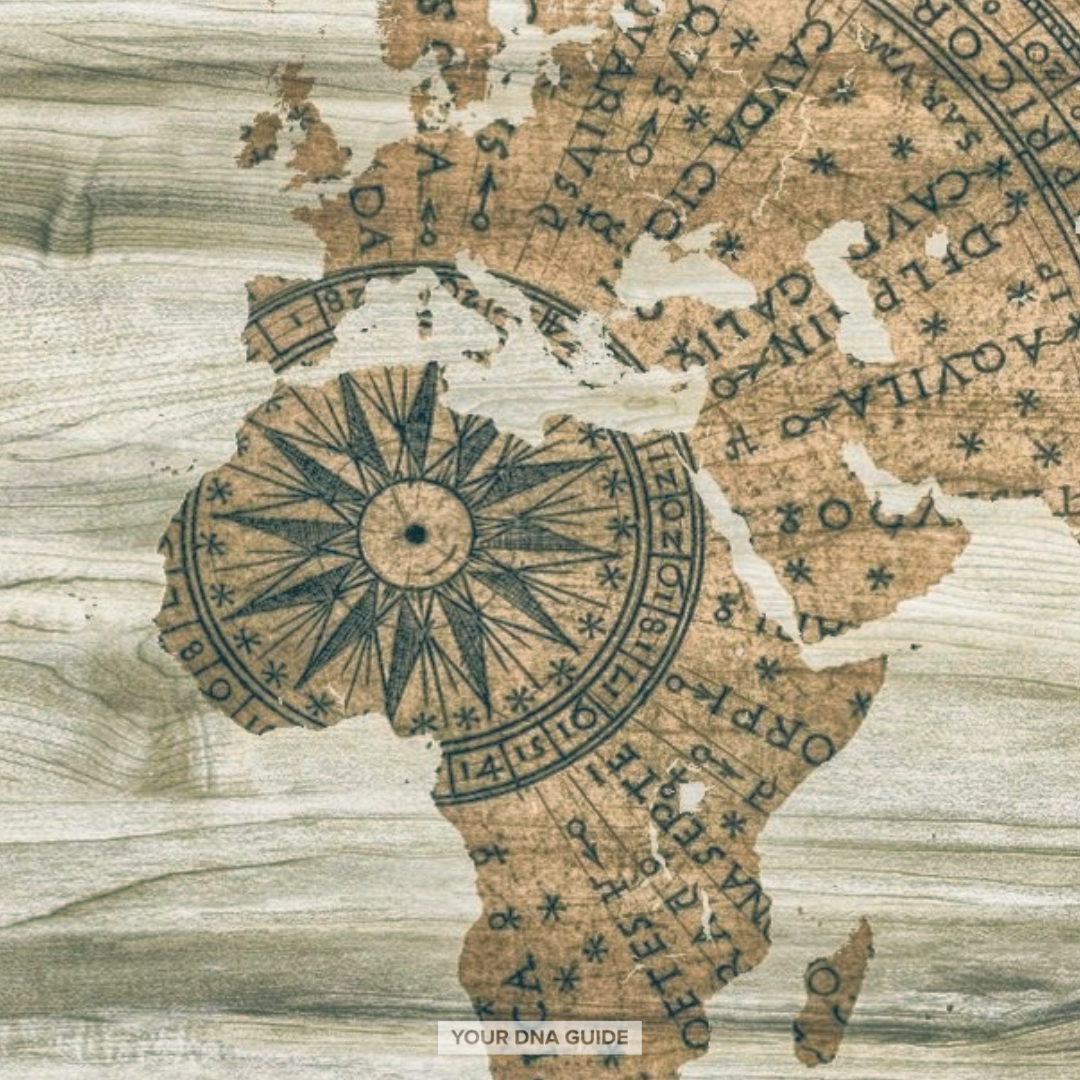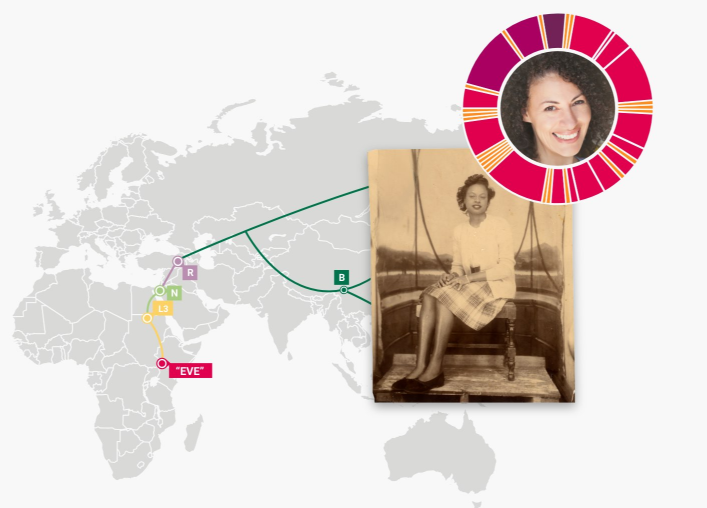What is a haplogroup? How do I use DNA haplogroups to learn about my genetic story? Your DNA Guide is your source for answers to these and other questions.

As of November 2023, FTDNA is now beginning to show YDNA haplogroups for genetic males who’ve taken a Family Finder autosomal test! These haplogroups will be rolled out in batches of several thousand people at a time, so you may not see your haplogroup right away. If you’ve taken a FTDNA Family Finder test, you can also see your matches’ haplogroup information on the Family Finder match page, and you can see whose results are from the Family Finder test and who has taken a YDNA test.
If you’ve taken a DNA test elsewhere and have uploaded your results to FTDNA, haplogroups will soon be available once they are fully rolled out for Family Finder testers. But there are some caveats. To see the haplogroups, you’ll need to pay for the advanced Family Finder features, which is $19. If you’re uploading results from AncestryDNA or 23andMe, your haplogroup results may not be as accurate due to the different way that these companies test compared to FTDNA. Additionally, only you or a group administrator will be able to see your own haplogroup, and you won’t be able to see your matches’ haplogroups.
These haplogroup results from the Family Finder test aren’t as robust as what you’d get from a YDNA test, but this is still great news! MtDNA haplogroups are still a work in progress and should be available by late 2024 or early 2025.
What is a haplogroup?
Named with a dizzying array of letters and numbers, your haplogroup attempts to describe the deep ancestral history of your direct maternal or direct paternal line.
Let’s dissect that word for a closer look. Group means, just that, a set of individuals who share particular characteristics. Haplo, is short for haploid, and means single. This refers to the fact that we have a single copy (or version) of the Y-DNA and a single version of the mtDNA in our bodies. This is opposed to the other 22 sets of chromosomes, which are diploid, or two, because these chromosomes come in pairs (one from mom, one from dad).
Therefore your haplogroup is like a club you belong to that can only be associated with the ancestors on one single direct line of inheritance. This club membership helps you define where in the world your direct line may have originated. It can also describe your affiliation with a particular special interest group (SIG) within your club that may help you answer some genealogical questions about the origin of your ancestors. This directory of Y DNA haplogroups from around the world can help you place your haplogroup on a map; below is a sample image of Y DNA haplogroups in Europe.

Current distribution of prevailing Y-DNA-haplogroups in Europe. Click on image to see full citation and image information.
Your membership dues are paid in single changes in your DNA that have accumulated over time. We call these single changes SNPs (pronounced “snips”). Just like donations to any club’s account can be tracked to ensure you receive the benefits, each SNP has a time and a place stamp that lets us know when you have “paid” and which SIGs you may belong to.
What do DNA haplogroups tell me?
The particular name of your haplogroup easily designates which club and which SIG you belong to. All haplogroups are named with an alternating number and letter pattern. The first letter tells us which club you are in, with all numbers and letters that follow acting like Russian nesting dolls letting us know which SIG you are in. For example, in H2a3b we would say you are in club “H”, in SIG “b” within SIG “3” within SIG “a” within SIG “2.” (Phew! And that was a short one!)
As you might expect, those who share your most detailed SIG are the most like you; you have the same genetic “interests,” so to speak.
 You automatically receive the most detailed information possible about your mtDNA club membership when you order the mtDNA Full Sequence test at FTDNA. However, the YDNA haplogroup you receive from FTDNA is very general or high-level, not providing very much information about your SIGs on your paternal line.
You automatically receive the most detailed information possible about your mtDNA club membership when you order the mtDNA Full Sequence test at FTDNA. However, the YDNA haplogroup you receive from FTDNA is very general or high-level, not providing very much information about your SIGs on your paternal line.
The Y DNA haplogroup R-M269, for example lists “R” as the club name and “M269” as the SIG. But there are hundreds of other SIGs under M269 (think of the nesting dolls again) that FTDNA does not test for you unless you pay an additional fee.
In general, your haplogroup might be able to tell you a general area in the world where you are from. We’ve written more about these particular haplogroups:
- YDNA Haplogroup E (E1b1b and E1b1a)
- YDNA Haplogroups J1 and J2
- YDNA Haplogroup R1a and R1b
- MtDNA haplogroup H
- MtDNA haplogroup L7
You may learn more by joining a haplogroup study. But often, without additional testing and/or analysis, it likely will not be a shining beacon to direct your genealogical research: more like a pretty badge to wear to your next genealogy conference.
Next steps for your Y DNA or mtDNA journey
 My inexpensive, quick reference guides on YDNA and mtDNA testing can help you better understand your test results, including haplogroups.
My inexpensive, quick reference guides on YDNA and mtDNA testing can help you better understand your test results, including haplogroups.
Take me to those Quick Guides!
Start your YDNA journey for free! Our YDNA FREE Get Started Course (an excerpt of our full our YDNA for Genealogy Course) will help you consider the many ways YDNA might help you answer your questions about your family history.

